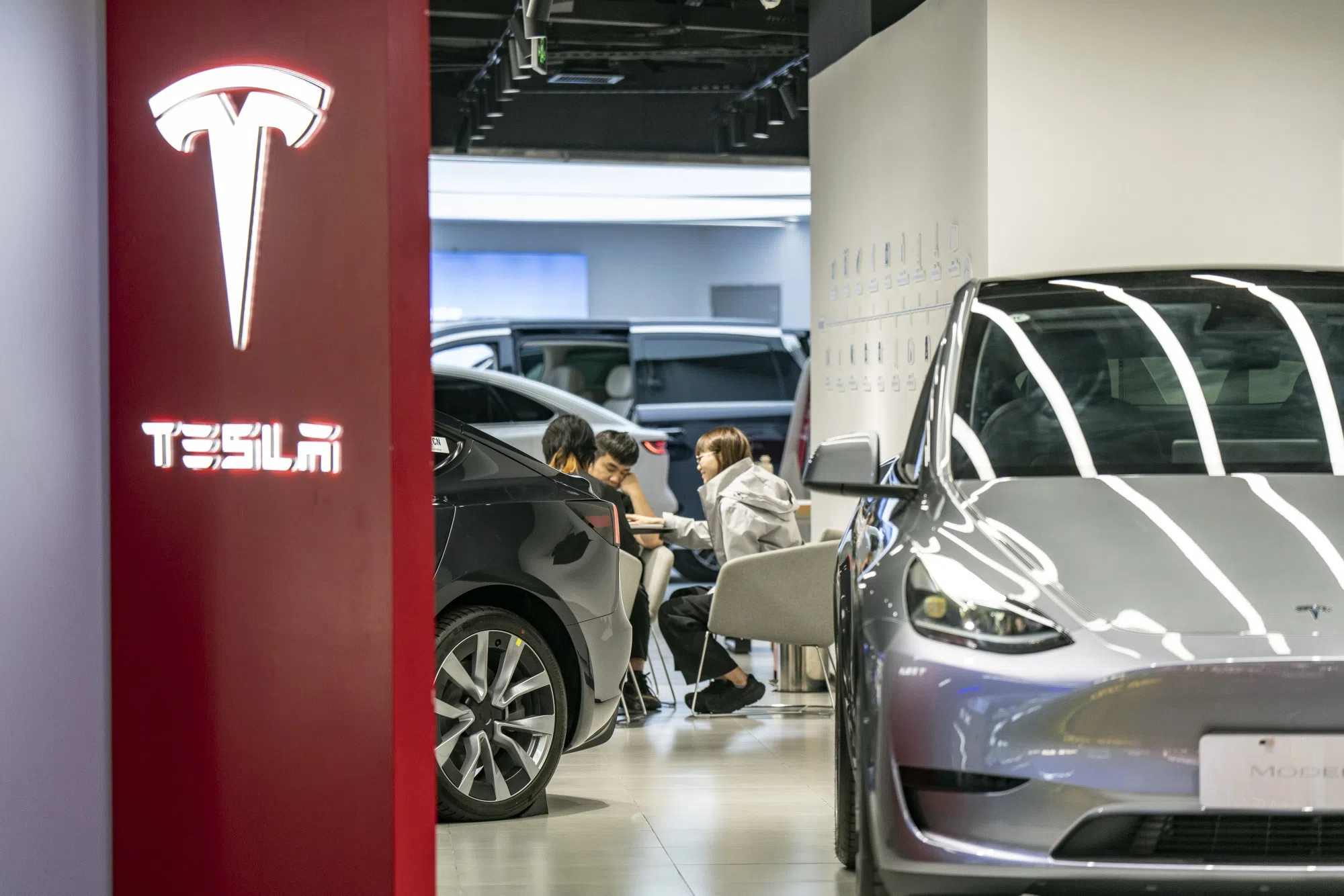TESLA shares’ breathless rally hit a wall on Thursday (Jul 11) on a report that the company might delay a crucial event that many investors have been pinning their hopes on. Yet even before that, it was already becoming harder to argue the case for the bulls.
The last time the company’s shares ran up like this, the rally was supported by revenue expanding at a double-digit clip. Things seem a lot gloomier now. The mood around electric vehicles (EVs) is subdued, Tesla’s sales are shrinking and its profits are sagging.
And then came the big blow on Thursday: Tesla is planning to delay its keenly anticipated self-driving technology – the robotaxi – to October, from August. The news sent the stock plunging as much as 8.3 per cent, set to wipe off more than US$60 billion from its market capitalisation.
Even before the news of the robotaxi delay, the gravity-defying rally was making some nervous. The shares had soared 44 per cent to Wednesday over an 11-day winning streak that’s the longest since June 2023. The stock was trading at 90 times forward earnings at its last close, a level that was last seen in early 2022, according to data compiled by Bloomberg.
The surge came as traders looked past Tesla’s EV credentials and bet that Elon Musk can transform it into an artificial intelligence powerhouse. The idea was that when Musk finally unveils Tesla’s robotaxi, it will solidify the company’s position as a leading artificial intelligence (AI) player.
“Investors have been looking for that one breakthrough, real-world application of AI,” said Nicholas Colas, co-founder at DataTrek Research. “And now we have someone who has been working on AI for years saying ‘hey, I have got that killer application.’”
BT in your inbox
Start and end each day with the latest news stories and analyses delivered straight to your inbox.
Yet, some numbers fly in the face of the current buzz around the stock: earnings are set to drop by 21 per cent in 2024 and revenue growth is seen decelerating to just 2.2 per cent.
“This is clearly a faith-based stock now, not one whose valuations are in any way tied to current earnings power, and every day the stock rallies the bar for the event just gets higher,” Colas added.
The frenetic rally, which prompted bond billionaire Bill Gross this week to compare Tesla to meme stocks, picked up steam after the company’s Jul 2 sales update suggested the worst of the EV slowdown may be over. But the surge has since taken on a wilder momentum.
Tesla is now the fifth-most expensively priced stock in the S&P 500 Index on a price-to-earnings basis, far surpassing the rest of the megacap technology cohort. The shares were rising again on Thursday, before the news of the delay sent them plunging.
The glaring risk for investors is that for Tesla, success in AI relies on solving one of the most complex problems the technology has yet tackled – creating cars that drive themselves more safely than humans can. By and large, analysts and experts believe a real-world mass adoption of such technology is likely decades away.
Tesla has “always traded on hopes and dreams”, said Steve Sosnick, chief strategist at Interactive Brokers. “If you are not thinking about the future, the fact that this company is worth almost as much as the rest of the auto industry combined doesn’t make sense. But if you think Elon Musk and Tesla are going to change the world, so what if you are paying 100 times earnings?”
Even with the dizzyingly high PE ratio, the share price of about US$263 is a long way from the peak of about US$410 touched in November 2021. That’s because while Tesla’s stock is staging a spectacular turnaround, its earnings are getting smaller. In 2021, when the stock rose 50 per cent, annual profit jumped nearly seven-fold.
None of this makes it any easier to predict whether the rally is about to break. Trading in the options market suggested investors were largely optimistic, at least until Wednesday. But as shares slid on Thursday, the premium traders were willing to pay for bullish calls narrowed. The ratio of puts traded versus calls rose to the highest since Jun 20, suggesting a higher appetite to hedge against declines.
Still, not everyone was feeling brave enough to pile on.
For David Wagner, portfolio manager at Aptus Capital Advisors, which holds the company’s shares, the uncertainty around what Musk may present on Aug 8 makes the risk “too high right now to be investing new money into Tesla”.
The eye-watering wave of buying is also a cause of some unease for other market participants, concerned that any sell-off can get magnified once the tide turns.
“The biggest risk to Tesla shares is this level of volatility,” said Michael O’Rourke, chief market strategist at Jonestrading. “Usually, when you have this type of volatility, it works in both directions, so that’s a problem.” BLOOMBERG







